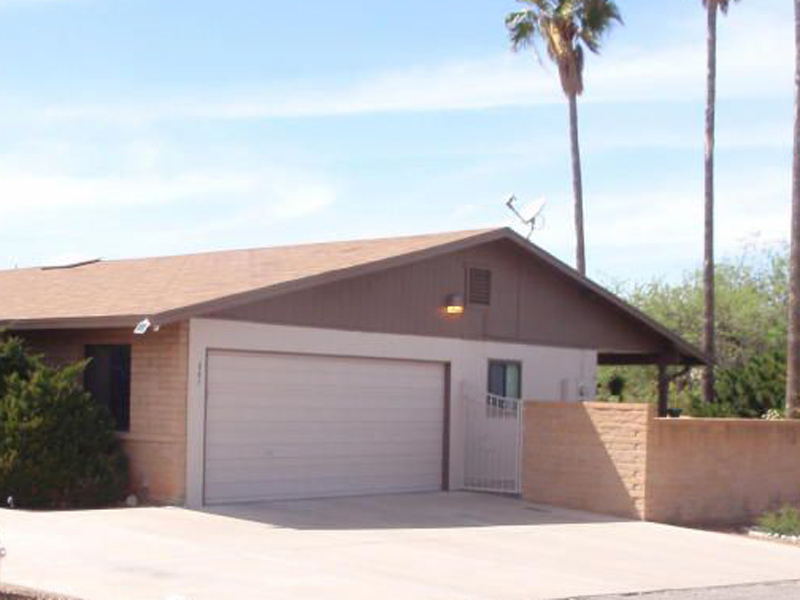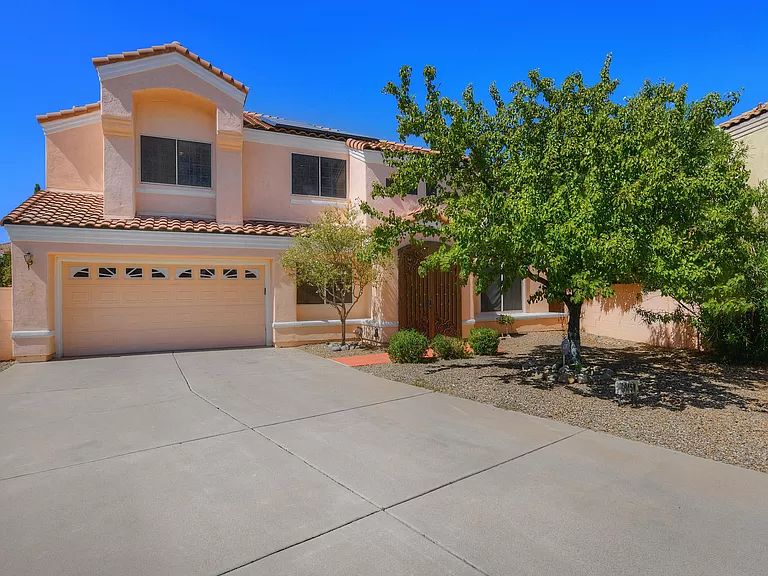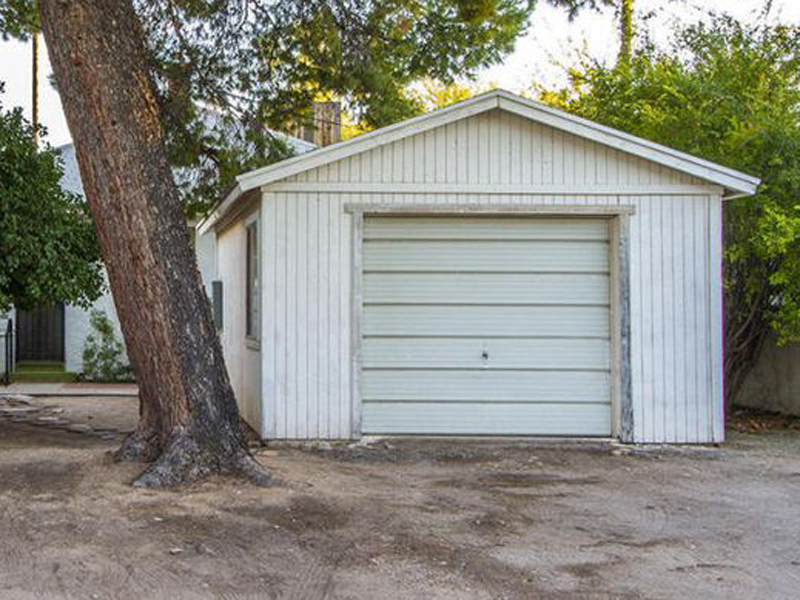Is Your Garage Door Stuck? Below's What to Do First
When your garage door will not open, start with these essential safety and security checks before attempting any type of repair work. First, guarantee no one is standing near the door which vehicles are free from the opening. Search for noticeable indicators of damage like broken panels, bent tracks, or hanging wires. If you see a snapped spring or badly damaged components, quit promptly and call a specialist—-- these repair work call for specialized devices and experience to manage securely.

Inspect These 6 Things Prior To Calling a Specialist
Before thinking you need pricey repair work, go through this quick analysis list that fixes most garage door problems:
-
Source of power: Validate the opener is connected in and the electrical outlet is working
-
Remote batteries: Replace dead batteries in your remote control
-
Manual lock: Inspect if someone mistakenly involved the manual lock
-
Blockages: Search for particles obstructing the door's path or sensors
-
Emergency situation launch: Make certain the red emergency situation cable hasn't been pulled
-
Circuit breaker: Confirm the garage circuit hasn't tripped
These simple checks resolve around 70% of garage door issues without needing professional intervention.
10 Typical Factors Your Garage Door Will Not Open Up
Comprehending why your garage door opener isn't functioning assists you choose the right option. Here are one of the most frequent reasons homeowners experience:
Dead remote batteries represent the simplest repair—-- when batteries die, the remote can't send out signals to the opener. Power blackouts or tripped breakers cut electrical power to the electric motor. Broken springs stop the door from lifting properly and call for immediate expert focus. Sensor misalignment reasons security systems to obstruct door operation. Track obstructions stop rollers from moving smoothly. Motor overload triggers automated shutoffs when the opener spots resistance. Limitation switch problems confuse the opener concerning door placement. Cable television damages disrupts the lifting mechanism. Weather-related problems affect door motion during severe temperatures. Part wear from age slowly decreases system efficiency.
Trouble # 1: Dead Push-button Control Batteries
When your wall button works however your remote doesn't, dead batteries are generally the wrongdoer. A lot of garage door remotes make use of either 3-volt lithium or 12-volt alkaline batteries. Get rid of the back cover of your remote and examine the battery kind. Change with fresh batteries and evaluate the remote. If it still doesn't work, you might need to reprogram it to your opener. Consult your opener's guidebook for certain reprogramming directions, as the process differs by manufacturer.
Issue # 2: Power Supply Issues
Garage door power issues usually come from loosened links or tripped circuits. Examine that the opener is securely plugged into its electrical outlet—-- vibration can loosen up connections in time. Evaluate the electrical outlet with one more tool to verify it's functioning. Analyze your home's breaker box for tripped circuits, specifically if you have actually experienced tornados or power fluctuations. GFCI outlets may have tripped and need resetting. If the opener has power yet will not respond, the concern likely lies in other places in the system.
Issue # 3: Broken or Damaged Springs
Damaged garage door springtimes are amongst the most dangerous parts to take care of. If you hear a loud bang from your garage or observe the door feels very heavy when trying to raise by hand, a springtime has actually likely broken. Torsion springtimes run horizontally over the door, while extension springs sit on either side. Never ever attempt spring repairs on your own—-- these components keep significant tension that can cause severe injury or emergency garage door repair services available 24/7 fatality. Expert replacement generally sets you back $150-$300 yet ensures your safety.
Problem # 4: Obstructed Safety And Security Sensing Units
Modern garage doors include security sensors that stop closure when items are identified. These sensing units can quit the door from opening up if they're dirty, misaligned, or obstructed by debris. Clean sensing unit lenses with a soft towel and make sure absolutely nothing blocks the unnoticeable beam of light in between them. Inspect that sensing units are correctly straightened—-- a lot of have sign lights that reveal link standing. Sensing unit issues commonly fix with easy cleaning and modification.
Problem # 5: Track Obstructions or Damage
Garage door tracks overview rollers as the door moves up and down. Dirt, debris, old grease, or tiny items can jam the system. Examine tracks aesthetically and get rid of any blockages with a brush or towel. Try to find damages, bends, or warping that might impede smooth operation. Minor track changes are possible for convenient homeowners, but considerable damage calls for specialist repair service to avoid additional problems or security dangers.
Trouble # 6: Garage Door Opener Electric Motor Issues
When the garage door motor runs yet the door doesn't relocate, a number of issues could be liable. The motor might be overloaded and shutting down as a safety measure. Equipment wear, specifically in older systems, can protect against proper operation. Chain or belt drive issues impact power transmission. If you hear unusual grinding, clicking, or humming noises, stop utilizing the opener promptly. Motor repair work usually set you back greater than replacement, particularly for systems over 10 years old.
Detailed Do It Yourself Troubleshooting Guide
Follow this organized approach to garage door troubleshooting while prioritizing security throughout the process:
Step 1: Check the wall button initially. If it functions however the remote does not, focus on remote problems. If neither works, examine power supply.
Step 2: Check out the hand-operated release cable. If it's been drawn, the opener is disengaged from the door. Push the trolley back to reconnect.
Action 3: By hand examine the door by disengaging the opener and trying to lift the door by hand. It ought to move efficiently and stay in location when half-open.
Tip 4: Evaluate noticeable elements for damages, paying unique interest to springs, cords, and tracks.
Step 5: Inspect all safety and security functions including sensors, restriction switches, and auto-reverse functions.
Step 6: Test various controls (remote, wall surface switch, keypad) to separate the trouble resource.
Constantly wear shatterproof glass and work handwear covers when performing inspections, and never attempt repair services on springs or high-tension parts.
When to Call a Professional vs. DIY Solutions

Knowing when to call a garage door professional versus trying DIY repair services safeguards both your safety and security and your purse. Manage these concerns on your own: dead remote batteries, power supply troubles, minor track cleansing, sensing unit cleansing and placement, and standard lubrication.
Never ever try these repair services on your own: springtime replacement or adjustment, cable television repairs, major track realignment, electrical circuitry issues, opener electric motor replacement, or any kind of repair work including high-tension components. Expert specialists have actually specialized devices, training, and insurance coverage to deal with hazardous repairs safely.
Consider fixing costs versus replacement expenses, especially for doors over 15 years of ages. Modern garage doors offer far better security features, energy efficiency, and dependability than older versions.
Emergency Garage Door Solutions
When you're stuck to a garage door that won't open and need immediate access, follow these emergency treatments:
Guidebook Procedure: Pull the red emergency situation release cord to disengage the opener. This permits hands-on procedure but requires proper method to prevent injury. Raise the door slowly and evenly, utilizing leg muscle mass instead of your back. The majority of property doors weigh 100-150 extra pounds, making them manageable for many grownups.
Temporary Repairs: If the door opens manually yet will not keep up, prop it open with sawhorses or clamps—-- never ever utilize your body or vehicles as supports. For doors that will not shut entirely, make certain the opening is protected if you need to leave.
Emergency situation Solution: Numerous garage door firms offer 24/7 emergency solution for situations involving protection worries, caught cars, or complete system failures. While more pricey than normal service telephone calls, emergency situation repair work provide immediate remedies when needed most.
Safety Caution: What NOT to Do
Garage door security requires comprehending harmful repair work that ought to never be attempted by homeowners:
Never ever attempt to fix springtimes—-- they keep sufficient energy to create deadly injuries when they break or are poorly handled. Don't require a stuck door—-- this can harm the opener, tracks, or door panels, creating more expensive issues. Prevent bypassing safety and security attributes—-- sensors and auto-reverse mechanisms stop major injuries and residential or commercial property damages.
Don't overlook strange noises—-- grinding, scraping, or banging audios indicate issues that get worse over time. Never utilize the door if cables are frayed or damaged—-- the door could fall unexpectedly. Do not try electrical fixings unless you're a qualified electrical expert—-- garage door openers make use of both 120V household existing and low-voltage control circuits.

Precautionary Upkeep to Prevent Future Problems
Normal garage door upkeep stops most typical issues and prolongs system life expectancy significantly:
Month-to-month Tasks: Visual examination of all components, examining auto-reverse safety functions, inspecting and tightening hardware, and cleansing tracks and sensors.
Quarterly Jobs: Lubing all relocating get rid of proper garage door lubricating substance, screening guidebook procedure, and examining weather condition sealing.
Annual Tasks: Expert examination and tune-up, spring modification if needed, and opener upkeep consisting of belt or chain modification.
Seasonal Jobs: Planning for climate extremes, inspecting insulation, and readjusting opener setups for temperature adjustments.
Consistent upkeep expenses much less than emergency repair work and guarantees trustworthy operation year-round.
Garage Door Won't Open Frequently Asked Questions
Why won't my garage door open with the remote however collaborates with the wall surface button?
This typically indicates dead remote batteries, signal interference, or the demand to reprogram the remote. Examine batteries first, then consult your opener guidebook for reprogramming directions.
Can I manually open my garage door if the power is out?
Yes, draw the red emergency situation release cable to disengage the opener, after that lift the door manually. Be prepared for the door's complete weight and lift with correct method to avoid injury.
Just how do I recognize if my garage door spring is broken?
Indications include a loud bang from the garage, the door sensation extremely hefty when raising by hand, noticeable gaps in the springtime coils, or the door only opening up a few inches before stopping.
Is it secure to use my garage door if it will not open completely?
No, partial procedure indicates mechanical issues that might get worse suddenly. Stop making use of the door and have it evaluated by a professional to stop more damages or injury.
What should I do if my garage door opens but won't close?
Examine safety and security sensing units for blockages or misalignment, examine the tracks for particles, and test the auto-reverse feature. If these do not solve the trouble, seek advice from a professional.
Just how much does it cost to deal with a garage door that won't open?
Prices vary widely relying on the trouble: battery substitute ($5-$10), specialist diagnosis ($50-$100), springtime substitute ($150-$300), or opener substitute ($200-$500).
Can weather influence my garage door's ability to open up?
Yes, extreme cold can enlarge lubricants and impact steel elements, while warm can cause expansion concerns. Most issues deal with as temperature levels normalize, but relentless concerns might need professional focus.
Why does my garage door open a couple of inches after that quit?
This typically shows broken springs, limitation button problems, or track obstructions. The opener's security functions stop procedure when resistance is found, avoiding damages to the motor or door.
Obtain Expert Assist for Complicated Problems
When DIY repairing doesn't resolve your garage door issues, expert service technicians give the competence and devices needed for safe, enduring repairs. Qualified specialists detect problems properly, use manufacturer-approved components, and provide warranties on their work.
Expert services consist of: thorough system inspections, springtime and cable television substitute, opener fixing and replacement, track alignment and substitute, electric troubleshooting, and emergency solution telephone calls.
What to anticipate: ahead of time pricing, licensed and insured service technicians, same-day service for many repairs, and follow-up maintenance referrals.
The majority of garage door companies use totally free estimates for significant fixings and can offer prompt options for urgent problems affecting home protection or vehicle gain access to.
Getting Your Garage Door Working Again
A garage door that will not open up doesn't have to wreck your day or damage your spending plan. Start with basic troubleshooting actions like checking power, changing batteries, and checking out for obvious blockages. Many issues have fast do it yourself remedies that bring back typical procedure within minutes.
Nonetheless, acknowledge when professional aid is required—-- specifically for spring-related problems, electrical troubles, or complicated mechanical failures. Trying unsafe repair services on your own takes the chance of major injury and typically creates extra expensive troubles.
Regular upkeep avoids most garage door problems and ensures reliable procedure for several years ahead. When troubles do happen, resolve them promptly to prevent more costly repairs and keep your home's safety and security and ease. Whether you require a simple battery replacement or total system overhaul, services exist to obtain your garage door functioning efficiently once again.